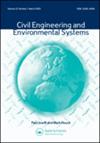BOK and terminology
IF 1.1
3区 工程技术
Q3 ENGINEERING, CIVIL
引用次数: 0
Abstract
To this writer, it seems that a Civil Engineering Systems Body of Knowledge (‘Special Issue’ – Dias and Jowitt, 2020) cannot progress until there is agreement on the meanings of terms. Mature technical disciplines in the sciences, medicine and engineering have been able to develop because there is agreement on the meaning of terms. More recent disciplines such as popular management are not developing, and perhaps even going backwards, because terms are used differently by different people and differently by the same person within the one context; multiple uses and meanings for terms prevent understanding. Without agreement on meaning, the encoding and decoding present in two-way communication goes awry. Lay usage of terms and the multiple definitions found in dictionaries are not suitable for discipline-specific communication; for example, Carmichael (2016) shows the pitfalls with using dictionary meanings when referring to ‘risk’, Carmichael (2020a) highlights the confusion in using the term ‘objective’, and ‘uncertainty’ and ‘problem’ have different meanings among the Special Issue papers. The multiple meanings for words found in dictionaries are exploited by comedians, poets and playwrights, but inhibit a technical discipline’s development. And where English is not a person’s first language, the situation is exacerbated.BOK和术语
对于本文作者而言,土木工程系统知识体系(“特刊”- Dias和Jowitt, 2020)在对术语的含义达成一致之前似乎无法取得进展。科学、医学和工程等成熟的技术学科之所以能够发展,是因为对术语的含义达成了一致。最近的学科,如大众管理,没有发展,甚至可能倒退,因为不同的人使用不同的术语,同一个人在同一背景下使用不同的术语;术语的多种用法和含义阻碍了理解。没有意义上的一致,双向交流中的编码和解码就会出错。术语的外行用法和词典中的多重定义不适合特定学科的交流;例如,Carmichael(2016)展示了在提及“风险”时使用字典含义的陷阱,Carmichael (2020a)强调了使用术语“目标”时的混淆,“不确定性”和“问题”在特刊论文中具有不同的含义。喜剧演员、诗人和剧作家利用字典中单词的多重含义,但却阻碍了一门技术学科的发展。如果英语不是一个人的第一语言,情况就更糟了。
本文章由计算机程序翻译,如有差异,请以英文原文为准。
求助全文
约1分钟内获得全文
求助全文
来源期刊

Civil Engineering and Environmental Systems
工程技术-工程:土木
CiteScore
3.30
自引率
16.70%
发文量
10
审稿时长
>12 weeks
期刊介绍:
Civil Engineering and Environmental Systems is devoted to the advancement of systems thinking and systems techniques throughout systems engineering, environmental engineering decision-making, and engineering management. We do this by publishing the practical applications and developments of "hard" and "soft" systems techniques and thinking.
Submissions that allow for better analysis of civil engineering and environmental systems might look at:
-Civil Engineering optimization
-Risk assessment in engineering
-Civil engineering decision analysis
-System identification in engineering
-Civil engineering numerical simulation
-Uncertainty modelling in engineering
-Qualitative modelling of complex engineering systems
 求助内容:
求助内容: 应助结果提醒方式:
应助结果提醒方式:


